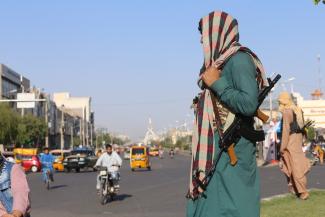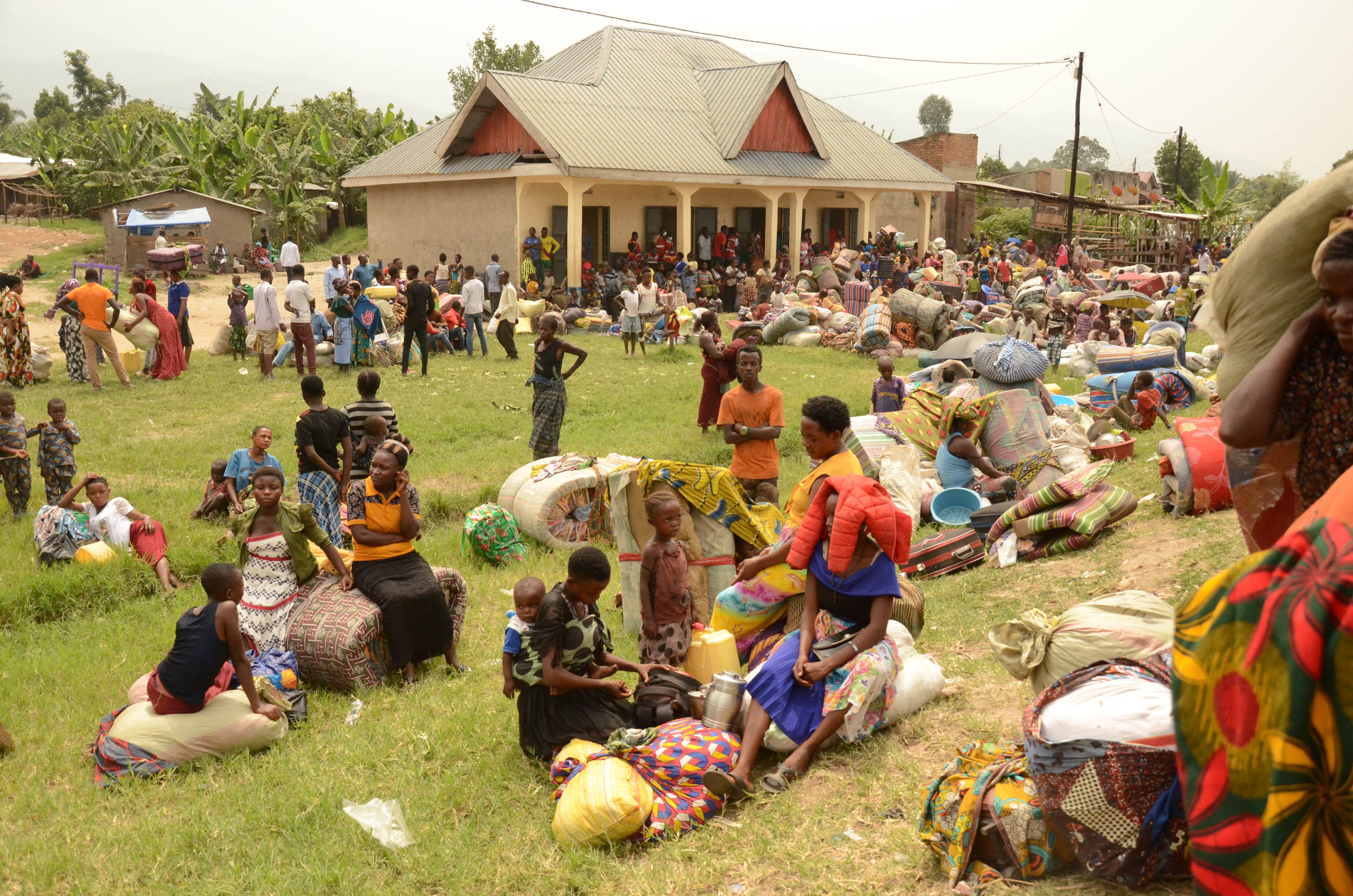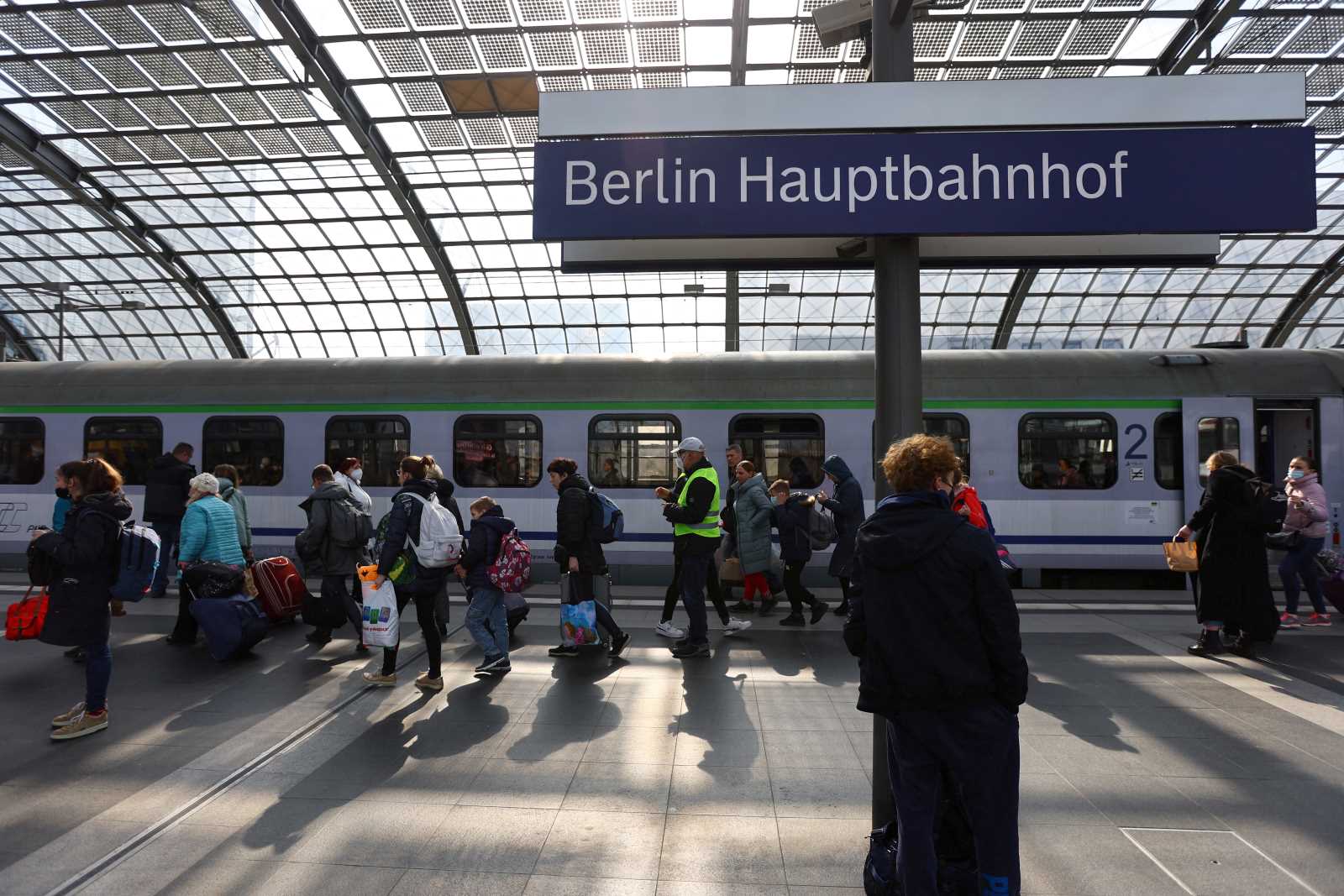Afghanistan
How I fled from Afghanistan to Germany

Herat is my hometown and used to be known for its spectacular culture and modern lifestyle. As the Taliban advanced in August 2021, however, it turned into a ghost town.
Herat is located in western Afghanistan and the capital of the province that bears its name. With 600,000 people, it is Afghanistan’s second largest city.
In an alliance with the formal military, Amir Ismail Khan, a former mujahedin leader, wanted to fight the Taliban which were already in control of large parts of the country. A devastating battle was looming. Many of those who feared the Islamists tried to flee and make it to a foreign country. Among those who did so where business people, civil-society activists, journalists, government officials and plain citizens. Even the security forces withdrew, taking along family members.
This summer, everything that had flourished and brought me joy in Herat withered away. Being a journalist, I obviously had reason to worry about my future as well as that of my family, friends and acquaintances. In view of the Taliban’s anti-women’s rights ideology, I felt most concerned about the safety of a friend of mine who is a female journalist.
Nonetheless, I wanted to withstand the fears and not abandon Herat at this historical moment. I also felt responsible for a foreign journalist whom I was helping to work in my hometown. Relatives and friends insisted I should leave, but I was determined to stay.
Those were the toughest days I’ve ever experienced. As a reporter, I witnessed Taliban attacks on the frontline. On 12 August, the Islamist forces took the town. All high-ranking officials surrendered. So did Amir Ismail Khan. The troops handed over their arms, including heavy weapons, to long-haired, sandaled rebels on motorbikes. The hopes and wishes of Herat’s people simply evaporated.
I grew up there. Sweet memories are linked to this place, and so are bitter ones.
Taliban-controlled Kabul
The time had come to say farewell forever. After two more days, I decided to leave with my wife and children. We wanted to escape the country from Kabul. We left behind our home and way of life. We gave up good jobs and took our children out of school, neither knowing where we would get to nor how long we would be staying there. This decision was not selfish, it also served to protect friends and relatives.
We spent more than 24 hours on the road. We saw the signs of war: bomb craters, burned vehicles and the like. By the time we arrived in Kabul, the Afghan Republic no longer existed and the Taliban were establishing their emirate.
It had been foreseeable for some time that the Republic would fail. It was mired in corruption, and part of the government had authoritarian attitudes (see interview with Paul D. Miller on www.dandc.eu). It was outrageous that President Ashraf Ghani fled the country. The Taliban took the capital city without fighting.
By that time, most men had grown beards and were wearing traditional clothing. They were afraid of hard-line Taliban. With the exception of a few courageous civil-society activists, women and children were dressed in traditional garb too. Some were protesting and demanding rights for girls and women, such as going to work or school. The attitude of the Taliban at this point was still rather restrained. They did not want to risk international disapproval and wanted their regime to be formally acknowledged by foreign governments.
Nonetheless, armed jihadists seemed to be everywhere – in market squares, along the street, at checkpoints. They looked terrifying with unusually long hair and beards. Some wore uniforms, but many were clad informally. They controlled the cars of Kabul’s frightened inhabitants. They seemed to be looking out for enemies everywhere. They observed fashionably coifed young men in jeans with suspicion – and that was also their attitude towards women and girls in tightly fitting dresses or who dared to show a strain of hair.
The 30 days I lived under Taliban felt like 30 years. For my family and myself, the only hope was to escape. Journalist friends called from abroad by phone and offered support. Particularly encouraging were the wonderful people from Deutsche Welle Academy. Friends in Kabul were also helpful, but I did feel despair in view of the terrible scenario.
Departing to Islamabad
Finally the day arrived for our family to board a plane to Islamabad, the capital of Pakistan. An aid agency paid for the tickets. Other people were hit much harder than we were. The one-way trip to Islamabad cost persons who had to leave for health reasons or because of an emergency more than $ 1200. Tickets were only available on the black market as all airlines were booked for many months ahead. Those who wanted to get to Pakistan by land needed newly introduced passports which cost anywhere between $ 400 and $1000 per person. Visas were also required and sold on the black market too.
Colleagues from Deutsche Welle welcomed us at Islamabad airport. We could finally relax, feeling safe in the accommodation they had booked for us. Friendly staff from the German embassy provided us with visa, so we could soon fly on to Leipzig, from where we travelled on to Cologne. I will never forget how happy our children were on this flight, nor how enthusiastically my colleagues from DW Academy welcomed us in Cologne. These moments are now among the most cherished of my life.
The decision to leave our home was anything but easy. What brought me to Germany was the dream of a better life for my children, one without violence or extremism. We have only been here for a few weeks, and our new lives have just begun. I am sure, however, that my children will have a good future here. We have experienced a lot of empathy and generosity, and we feel grateful. We are fully aware of others being less fortunate and still stuck in Afghanistan.
Hamed Sarfarazi is a Germany-based Afghan journalist. He works with Deutsche Welle Academy.
hamedsarferazi@yahoo.com










